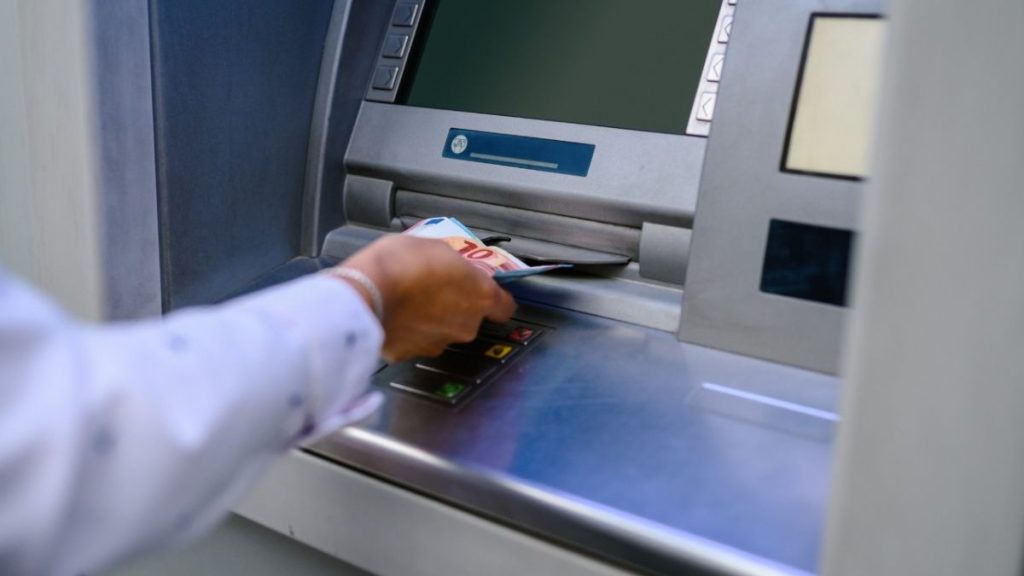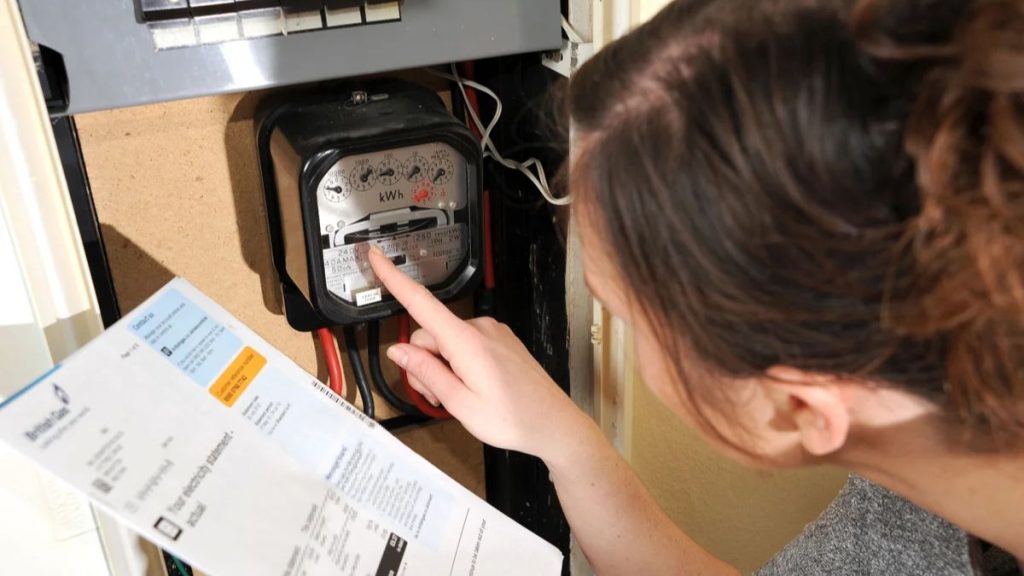As energy prices continue to fluctuate, millions of UK households are being strongly advised to submit their latest gas and electricity meter readings as soon as possible.
Consumer watchdogs and energy regulators warn that failing to update readings could result in overcharging, with some households paying far more than they actually owe due to outdated or estimated bills.
The warning comes at a time when living costs remain high — especially for pensioners, low-income families, and those already struggling to manage essential expenses. With new tariffs being rolled out across the energy market, this simple step could make a significant difference in reducing monthly outgoings.
Why Submitting a Meter Reading Matters

Your meter reading tells your supplier exactly how much energy you’ve used. If you don’t submit one, your bill is based on estimated usage — which can often be higher than your real consumption.
Energy companies calculate these estimates using past data or household averages, but these figures rarely reflect personal usage accurately. For instance, if you’ve recently reduced your heating or installed energy-efficient appliances, estimates may overstate your usage and inflate your bill.
Key Reasons to Submit a Reading
- Avoid overpaying – ensures you’re only charged for what you actually use.
- Prevent estimated billing errors – stops suppliers guessing your consumption.
- Track your energy habits – gives you better control over household spending.
- Adjust for tariff changes – ensures accurate billing during price updates.
A single, up-to-date reading can prevent months of inaccurate bills — saving families hundreds of pounds over the course of a year.
How Overcharging Happens
Overcharging typically occurs when energy suppliers rely on estimated readings for too long.
If you haven’t submitted a new reading in several months, your supplier may continue to calculate your bills based on historical consumption patterns — and these are often on the higher side.
Common Scenarios Leading to Overcharging
- High Estimates: Suppliers tend to round up usage rather than down.
- Tariff Changes: If prices drop but your estimated usage remains high, you could be charged at old, higher rates.
- Seasonal Differences: Winter consumption is naturally higher — if estimates assume constant usage, you might overpay during milder months.
For example, if wholesale energy prices fall and you don’t provide an updated reading, your supplier might still calculate your bill at the previous rate, effectively locking you into higher costs.
The Link Between Energy Bills and Cost-of-Living Pressures
The cost-of-living crisis continues to affect millions across the UK. With prices rising across essentials like food, transport, and housing, even a small overcharge on energy can have a big impact on struggling households.
Energy bills often make up 20–30% of total household expenditure, especially during colder months.
Consumer experts say that regularly submitting readings is one of the simplest ways to cut unnecessary spending without changing daily habits.
“It’s a five-minute task that could save families from paying hundreds of pounds extra each year,” said one energy advisor. “In this economic climate, accuracy is more important than ever.”
What UK Households Should Do Right Now
If you haven’t submitted a meter reading recently, now is the time to do it.
Energy experts recommend that all households update their readings before the next billing cycle to ensure fair charges.
Step-by-Step: How to Submit a Meter Reading
- Locate your meter – usually near your front door, hallway, or utility box.
- Record the numbers – ignore any red digits or those after a decimal point.
- Log in to your energy account – submit the reading online, via mobile app, or by phone.
- Take a photo – many suppliers now accept photo uploads for extra accuracy.
- Set a reminder – repeat the process monthly or quarterly to keep bills accurate.
This proactive approach helps prevent disputes with your supplier and ensures your account stays up to date with your actual energy use.
How Often Should You Submit a Meter Reading?
The best practice is to submit readings once a month.
However, if that feels too frequent, aim to provide one at least once per quarter — particularly just before tariff changes or seasonal adjustments.
Some suppliers also send reminders via email or text when your next billing cycle is approaching.
Keeping this routine ensures your bills are based on real data rather than outdated estimates.
Smart Meters: The Automatic Solution
The UK government continues to promote smart meter installations, which automatically send your usage data to suppliers.
Smart meters eliminate the need for manual readings, providing real-time updates and accurate bills every month.
Benefits of Smart Meters
- Automatic data submission – no manual readings needed.
- Real-time tracking – shows how much energy you’re using instantly.
- Accurate billing – no more estimated usage errors.
- Energy insights – helps identify where you can cut consumption.
However, not all households currently have a smart meter. Some areas still face signal or connectivity issues, and certain older meter models require manual updates.
Until full nationwide reliability is achieved, manual readings remain the safest option for ensuring billing accuracy.
Consumer Advice: Avoiding Future Billing Problems
Energy experts recommend combining regular meter readings with simple money-saving habits to keep bills under control.
Top Tips for Managing Energy Bills in 2025
- Compare tariffs – check if switching providers could save money.
- Monitor consumption – use a smart plug or in-home display to track daily energy use.
- Claim available benefits – pensioners and low-income families may qualify for the Warm Home Discount or Cold Weather Payments.
- Check direct debit amounts – ensure your monthly payments match actual usage.
- Contact your supplier early if you suspect an overcharge.
Taking these steps together can help households protect their finances during another year of volatile energy prices.
Government and Industry Warnings
Both the Energy Saving Trust and Ofgem, the UK’s energy regulator, have issued fresh reminders urging households to stay proactive about meter readings.
According to recent data, more than 4 million households across the UK still rely solely on estimated bills, leading to unnecessary overpayments.
Consumer groups like Citizens Advice and Which? have echoed the call, reminding the public that submitting a meter reading takes less than five minutes but could save households significant money.
“Inaccurate billing is one of the most common causes of energy debt,” said a spokesperson for Citizens Advice. “Updating your reading is a quick fix that keeps your account balanced and fair.”
Why This Advice Matters Most to Vulnerable Households
Low-income families, pensioners, and those on fixed incomes are the groups most affected by inaccurate billing.
These households often operate on tight budgets, and even a small overcharge can lead to debt accumulation or reduced spending on essentials like food and heating.
For anyone claiming Universal Credit, Pension Credit, or Housing Benefit, providing accurate readings ensures that energy support schemes like the Warm Home Discount are applied correctly.
FAQs
1. Why should I submit my meter reading now?
Because it ensures your supplier charges you based on actual energy usage, not estimates, helping you avoid overpaying.
2. How often should I update my meter readings?
At least once every quarter, though monthly readings offer the most accurate billing.
3. Can I submit my meter reading online?
Yes. Most suppliers allow you to submit readings through their website, mobile app, or customer portal.
4. What if I have a smart meter?
Smart meters automatically send readings to your supplier. However, if your device isn’t transmitting properly, submit a manual reading to stay accurate.
5. What happens if I don’t send a reading?
Your supplier will estimate your usage, which can lead to inflated bills and higher charges than you actually owe.














